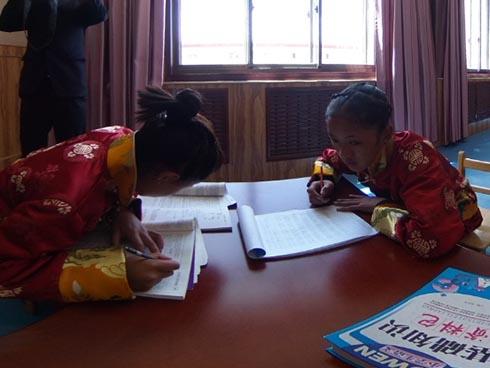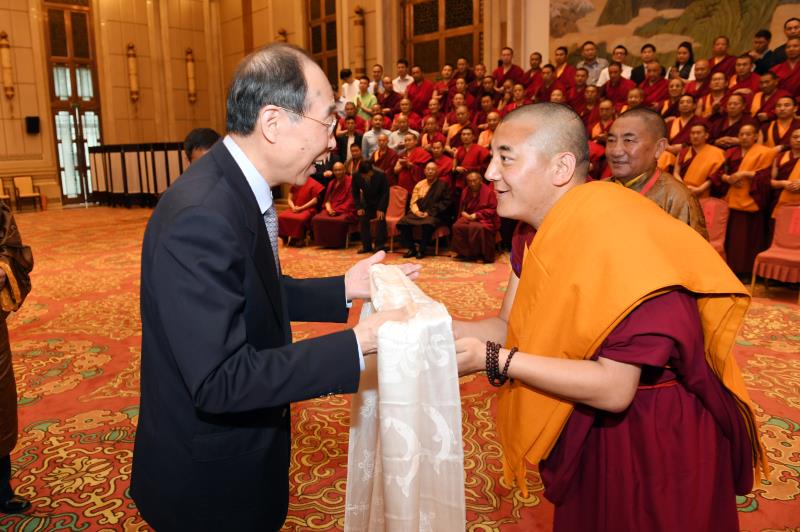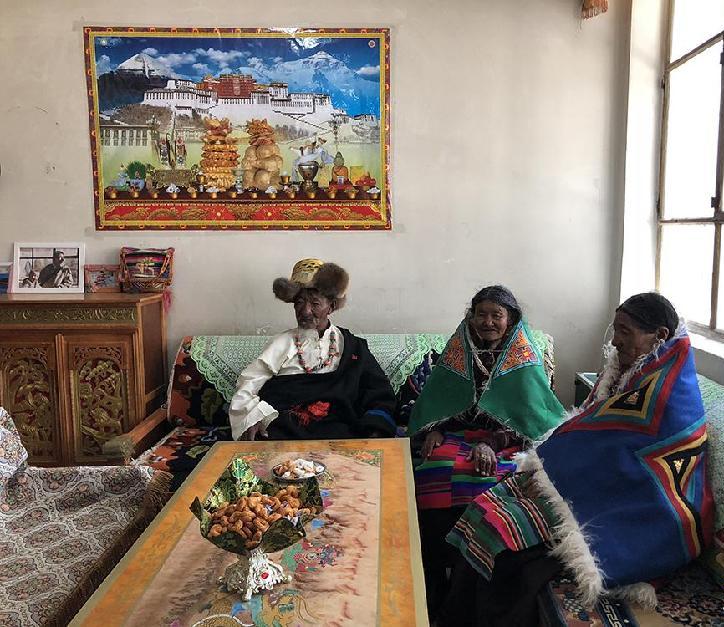Language is the core of strengthening inter-ethnic communication
At the Central Working Conference about Ethnic Affairs from September 28 to 29 in 2014, General Secretary Xi Jinping pointed out the need to “correctly understand the mainstream of China’s ethnic relations, be good at uniting the masses, win over the people, and strengthen exchanges among all ethnic groups.” In a speech given during the 19th National Congress of the Communist Party of China on October 18, 2017, General Secretary Xi once again pointed out the need to “foster a strong sense of community for the Chinese nation, encourage more exchanges and interactions among different ethnic groups, helping them remain closely united like the seeds of a pomegranate that stick together, and work jointly for common prosperity and development.” The statement “encourage more exchanges and interactions among different ethnic groups” was first written into the report of the Party Congress as an important guiding ideology for the Party’s ethnic work. So then, under the guidance of Xi Jinping Thought on Socialism with Chinese Characteristics for a New Era, what kind of efforts should be made to better promote exchanges among ethnic groups? In this regard, a China Tibet Online reporter exclusively interviewed Zhou Wei, director of the Institute of Religion at the China Tibetology Research Center.
"Language is the bridge between cross-cultural communication and the core of strengthening exchanges and integration among different ethnic groups. An important symbol of cultural mixing is language integration. Ethnic minorities study Mandarin, the national common language, helps them communicate and cooperate with people of other ethnic groups, integrate into society, and is a requirement for the development of ethnic minorities." Zhou Wei, who is proficient in Chinese, Tibetan, and English, gave advice on how to promote exchanges among different ethnic groups from the angle of language integration.
"Language is more than just a tool, and its role is far more than just for communication. Language opens up the window into another culture. By studying a new language, we can achieve the most direct contact with a new culture, and as we progress in our studies, we can better understand an ethnic group and its culture. For example, you might not have been to a certain country, but if you master its language, you can feel closer to the ethnic group and understand its culture, lifestyle, and other details."
Zhou Wei also stressed that languages are equal; there isn't one that is superior to others. Different ethnic languages sustain and inherit the spiritual wealth of human development. Because of this, China has always attached great importance to the protection of ethnic minority languages. As early as 1987 and 1988, a series of publications on "Regulations on the Learning, Use, and Development of Tibetan Language in the Tibet Autonomous Region (Trial Implementation)" was issued to incorporate the study, use, and development of Tibetan language into the legal system. In 2002, the "Regulations on the Learning, Use, and Development of Tibetan Language in the Tibet Autonomous Region" was revised and published again, affirming the Tibetan language’s status as a common language in Tibet and also indicating the equal status of the Tibetan language with the common spoken Mandarin in Tibet.
Although his current main research field is in religious studies, Zhou Wei is actually an authority on the Tibetan language. He majored in Tibetan language and minority language studies in both his undergraduate and graduate studies and taught Tibetan language and culture courses for one year in Hungary. With the help of language and having the advantage of academic standards, Zhou Wei organized experts to compile China’s first Tibetan reference book for primary and middle school students, the Middle and Primary School Tibetan Language Dictionary. In addition, he has continued to pay attention to scientific issues in the development of Tibetan language. He has visited Tibet on many occasions to conduct on-location research, using sociological methods to study the use of Tibetan language by Tibetans, and has also reviewed and regulated Tibetan translations of emerging new words and technical terms. In April of this year, his new book Language and Society of Tibet was published by the Social Sciences Literature Publishing House.
Your Comment
Name E-mailRelated News
-
-

-
Tibetan language under better protection in China
Starting from 2016, a 15-year free education policy began to be implemented.
-







